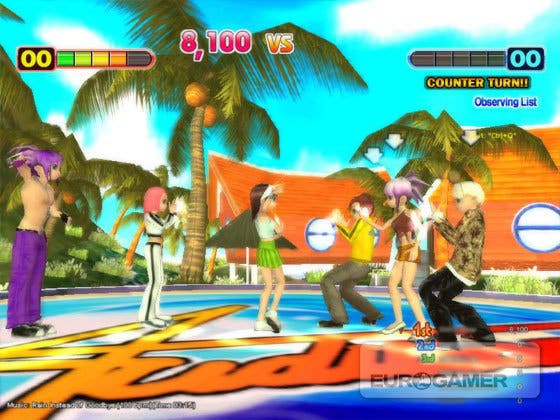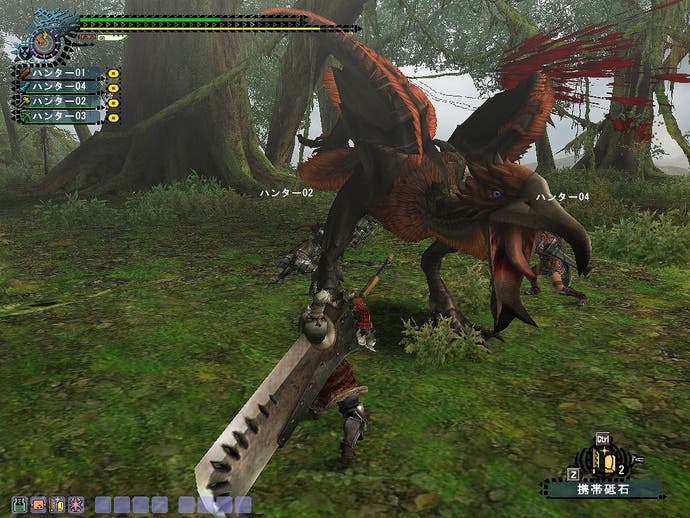Geek Purgatory
Trapped in an all-night manga cafe with Japanese MMOs.
About six days after arriving in Japan, I found myself in Tokyo in the company of a suddenly homeless friend. Stuck without anywhere to stay, we ended up doing something many foreigners find themselves doing in a state of desperation when they don't have enough money for a hotel, and checked into an all-night manga cafe. Imagine rows of miniature computer booths, just slightly too small for the average Western frame, all lined-up side by side, their sleep-deprived, hunched-up inhabitants bathed in the same harsh, fluorescent glare of white strip-lighting at any time of day or night.
There are endless shelves of manga and wee PlayStations under the desks, and a caffeinated drinks dispenser in the corner, but at night-time all anyone is trying to do is catch a few moments of furtive sleep, slumped face-forward on the desks or hunched up against a wall. If you're forced to spend more than a few hours there it begins to feel like time has ceased and you're going to be stuck there forever surrounded by endless entertainment that your exhausted brain will never absorb.
Perfect, then, for Japanese MMO gamers, who seem to congregate in these places rather than indulging their obsession in the comfort of their own homes. It's part of a wider Asian cyber-cafe culture, but that doesn't make it any more comprehensible. Getting stuck in one of these places for a torturous seven hours was my first brush with Japanese MMO gaming - bored out of my mind, wired on melon soda, searching the Japanese computer for something to entertain me until the trains started again.

MMOs in general aren't that popular in Japan, certainly nowhere near as popular as they are in Korea or China; the games that are popular tend to be Korean-developed efforts like the wildly successful and completely bonkers PangYa Golf. The only homegrown PC game that's achieved any kind of success in Japan is Final Fantasy XI, which is still played by many thousands. This strikes me as really very odd, as Japanese hardcore gaming culture revolves around the sort of obsessive dedication and grind-gaming mentality that MMOs channel well. It seems strange that in a country where people will happily pour hundreds of hours into things like Dragon Quest and Star Ocean and things like Pop'n Music, players seem uninterested in investing that time in a persistent online character.
Final Fantasy, being a console series crossover title, obviously has the right idea, combining a recognised and hugely loved name and universe with a persistent online world. There's just one other Japanese-developed MMO that has had the same idea. Among the pre-loaded online games on the PC in my fluorescent hovel in Tokyo was a Monster Hunter game I didn't recognise, which turned out to be Monster Hunter Frontier, a massively multiplayer reworking of the wildly successful PS2/PSP game Monster Hunter 2.

Being one of the seven non-Japanese Monster Hunter obsessives in the Western world, I was slightly wary of even signing up for Monster Hunter Frontier. I'd already lost about two-hundred hours of my life to the PSP games, and you'd think that a game in which you team up to slay enormous monsters in a two-hour-long epic battle would work perfectly online. Not so, as it turns out. All of the sane Monster Hunter players are busy working away on their PSPs - Frontier is for the most terrifying of obsessives only. There's no levelling - like MH2, you improve and get better by slaying better monsters and crafting better equipment out of their remains - and there appear to be practically no new players at all. Everyone else in the enlarged town that acts as a hub for Frontier players appears to be decked out in cloaks crafted from the fur of Cerberus himself.

